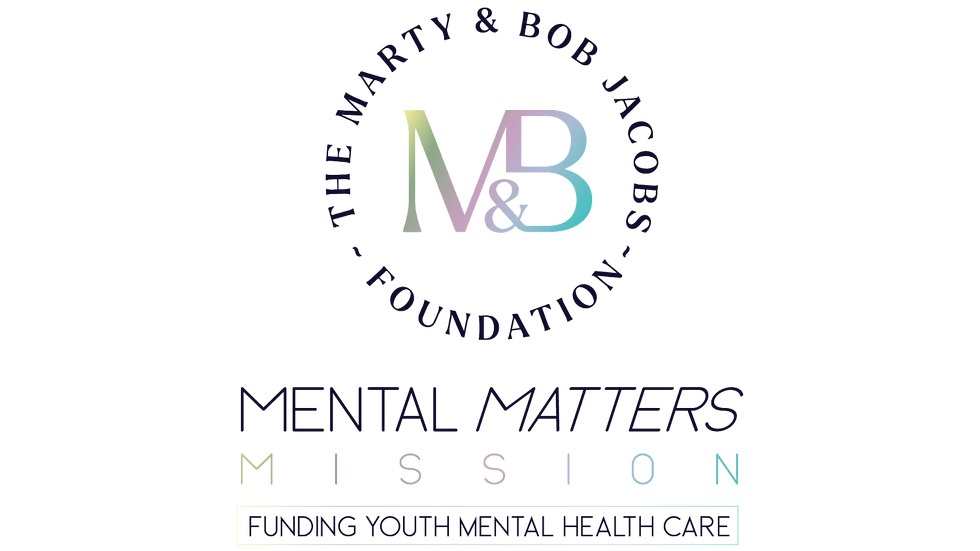One Mom’s Opinion
- jonahforever18
- May 26
- 4 min read
The following is certainly not an end all be all one-size-fits-all prescription for helping your child, it is just things that I wish another mother had told me so that maybe things might have ended differently for my Jonah. I hope you find something in here that helps your child.
If your child is under 18, you can call the psychiatric intake number at Children's Hospital 513-636-4124. They can assess your child’s risk and make a recommendation on whether (s)he needs further evaluation. If your child becomes a patient at Children’s before 18, (s)he can remain a patient until age 21. I am not sure where you are in this process, but I suggest making an appointment – even if it doesn’t seem soon enough – get your child on the schedule so that maybe (s)he will be ready to accept help when it is time for his/her appointment.
[If your child is over 18, even by 1 week, as was Jonah’s case, Children’s cannot and will not help you. You might consider taking your child to an ER where (s)he will be admitted to the Psych Unit at Good Sam for 72 hours. This is what we did with Jonah and, although he was diagnosed during his visit with major depressive disorder and put on medicine, I am not sure this was the best thing for HIM. But, it is an option.]
We did not look into The Lindner Center of Hope; I wish we had.
If your child is prescribed antidepressants, as our Jonah was, keep in mind that this drug is to treat a chemical imbalance. Nobody can measure anyone’s serotonin or dopamine level, and the healthiest level of each is unique to each individual person. Understanding this, explain to your child that multiple medications might need to be tried, and dosages altered, until the right one for your child is discovered.
What I did not know, until it was too late, is that DNA testing can be requested in relation to antidepressants, also known as pharmacogenomic testing, which can help to identify genetic variations that can influence how your child’s body metabolizes antidepressant medications, potentially helping doctors choose the most effective treatment with the lowest risk of side effects by tailoring medication selection based on your child’s unique genetic makeup; essentially, it aims to minimize the "trial and error" process of finding the right antidepressant for your child.
Your child can also have blood work done to see if (s)he has MTHFR. MTHFR stands for methylenetetrahydrofolate reductase, a gene that provides instructions for making an enzyme crucial for processing folate (vitamin B9) and breaking down the amino acid homocysteine. Mutations in the MTHFR gene can lead to changes in how the body processes these substances, potentially affecting overall health.
Boys show signs of depression differently than girls – through reckless and dangerous behavior. We found Jonah’s journal and some letters the day after his funeral. In his journal, he documented speeding and drinking and driving. We have Life 360 as a family; my suggestion – particularly if your teen boy is depressed – is to purchase the driving reports so you can have a conversation with him about his driving patterns.
We trusted Jonah, as I know you trust your child. But if your child hints at suicidal ideation, even if (s)he tells you (s)he would never go through with it, as Jonah reassured me, you might consider putting software such as Bark on your child’s device(s). Bark monitors texts, social media, searches such as suicide methods, and more. Invasion of privacy? Not when your child’s life is at stake. Also, who pays for the phone and whose name is the subscription in? My guess is the parents.
Many of Jonah’s signs of depression were blurred with those typical of a teenage boy – sleeping late on the weekends, struggling to get out of bed on school days, wearing the same sweatshirt every day, even after showering. Jonah noted in his journal that “getting out of bed is the hardest thing to do every day.” Not sure if it is depression or typical teenage behavior? Try having a conversation about it. Pose it as, “I’m worried about you because…. which can be a sign of depression…”
Much of Jonah’s experience was what was going on inside his own head – thoughts that he was never good enough, that he was never anybody’s first choice, and that he had to change his personality based on who he was with. These are all things we would never know because they were inside his head. He also mentioned blacking out when he promised himself he would barely drink, and also drinking to entertain friends. These, while disturbing to divulge, evidently coincided with the behaviors of his friends because nobody ever shared they were concerned about his well-being or safety, or mental health. And that is a lot to put on a teenager’s friends. Maybe, just keep an eye on your friends when you party. Is someone drinking faster or in larger quantities than others on a regular basis? These might be situations to report to a trusted adult – if not the child’s parents, then maybe a school counselor, teacher, or coach. Or, here is a novel idea, tell your friend you care and are worried about him!



Comments